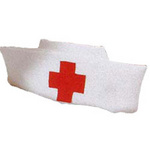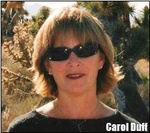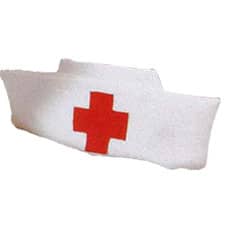 CURRENT WARNINGS FROM THE FDA
CURRENT WARNINGS FROM THE FDA
Health Editor note: It does not take long for "get- rich- quick- sharks" to circle when there is a health crisis. Carol Ware Duff MSN, BA, RN. Article posted October 23, 2009.
The Food and Drug Administration (FDA) is informing consumers of—and protecting them against—potential harm associated with unapproved products claiming to diagnose, prevent, or otherwise act against the 2009 H1N1 influenza virus.
Within the past two weeks, FDA has
- urged caution regarding promotions and Internet sites offering products for sale that claim to diagnose, prevent, mitigate, treat or cure the H1N1 flu virus
- enhanced efforts to warn about potentially deceptive H1N1 products, and encourage reporting of suspected criminal activity, with the release of an H1N1 flu fraud widget. This portable application is embedded in an agency Web page (www.fda.gov/NewsEvents/PublicHealthFocus/ucm186340.htm) and can be copied onto any other Web site or blog.
- with the Federal Trade Commission (FTC), issued a warning letter to a Web site marketing fraudulent supplements that claim to help prevent the spread of the H1N1 virus. The letter advises the site’s owners to discontinue marketing the products or face legal action
Previous Actions
These new measures follow FDA actions earlier this year to protect consumers against Web sites offering unapproved products. These actions included enforcing laws that protect consumers against these sites, and warnings posted through media outreach and a “Fraudulent Products List” posted on FDA’s Web site at www.accessdata.fda.gov/scripts/h1n1flu/.
Since May 2009, FDA has warned more than 75 Web sites to stop the sale of more than 135 products with fraudulent H1N1 influenza virus claims.
“Products that are offered for sale with claims to diagnose, prevent, mitigate, treat or cure the 2009 H1N1 influenza virus must be carefully evaluated,” says Commissioner of Food and Drugs Margaret A. Hamburg, M.D. “Unless these products and the claims they make are proven to be safe and effective, they will not prevent the transmission of the virus or offer effective remedies against infection. Furthermore, they can make matters worse by providing consumers with a false sense of protection.”
Buy Only FDA-Approved Products
Consumers are urged to only purchase FDA-approved products from licensed pharmacies located in the United States, and should contact their health professional if they have any questions or concerns about medical products or personal protective equipment.
Tamiflu (oseltamivir phosphate) and Relenza (zanamivir) are the only two FDA-approved antiviral drugs for treatment and prophylaxis of the 2009 H1N1 influenza virus. In addition to their approved labeling, these drugs have been issued Emergency Use Authorizations by FDA that describe specific authorized uses during the H1N1 public health emergency.
Patients who buy prescription drugs from Web sites operating outside the law are at increased risk of suffering life-threatening adverse events such as side effects from inappropriately using prescription medications, dangerous drug interactions, contaminated drugs, and impure or unknown ingredients found in unapproved drugs.
An Assortment of Targeted Products
FDA actively monitors the Internet and, where appropriate, purchases and analyzes drug products. In October 2009, it announced what it found when it purchased and analyzed several products represented online as Tamiflu.
One of these online orders resulted in delivery to FDA of an unmarked envelope postmarked from India. Inside were unlabeled, white tablets taped between two pieces of paper that were found to contain talc and acetaminophen, an active ingredient found in many medicines to help relieve pain and reduce fever. Not found was oseltamivir, the active ingredient of Tamiflu.
The Web site selling this product disappeared shortly after FDA placed the order.
The agency also bought four other products purported to diagnose, prevent, treat or cure the H1N1 influenza virus from other Web sites. These products contained various levels of oseltamivir but were not approved for use in the United States. Several did not require a prescription from a health professional.
In actions it announced in June 2009, FDA issued warning letters and advised operators of offending sites to immediately ensure that they weren’t marketing products intended to act against the H1N1 flu virus that have not been cleared, approved, or authorized by the agency.
- Among the unapproved, uncleared, or unauthorized H1N1 flu products it targeted at that time were
- a shampoo said to protect against the H1N1 flu virus
- a dietary supplement said to protect infants and young children from contracting the virus
- a “new” supplement said to cure H1N1 flu infection within four to eight hours
- a spray that claims to leave a layer of ionic silver on one’s hands that kills the flu virus
- several diagnostic tests that have not been approved to detect the H1N1 flu virus
- an electronic instrument whose sellers claim uses “photobiotic energy” and “deeply penetrating mega-frequency life-force energy waves” to strengthen the immune system and prevent symptoms associated with H1N1 viral infection
Work by FDA and the FTC to identify, investigate, and take regulatory action against individuals or businesses that wrongfully promote purported 2009 H1N1 influenza products will continue. These efforts can include additional legal actions including seizure of products, injunction, or criminal prosecution.
This article appears on FDA’s Consumer Updates page, which features the latest on all FDA-regulated products.
Carol Duff graduated from Nursing School at Riverside White Cross in Columbus, Ohio. 
She has a BA from Bowling Green University in History and Literature and a Masters of Science in Nursing as a Nurse Educator from the University of Toledo School of Nursing.
She has traveled extensively and has written on military history, veterans health issues and related subjects. She is the mother of several children and 10 cats and 1 guinea pig.
She can be reached via email at: [email protected]

Carol graduated from Riverside White Cross School of Nursing in Columbus, Ohio and received her diploma as a registered nurse. She attended Bowling Green State University where she received a Bachelor of Arts Degree in History and Literature. She attended the University of Toledo, College of Nursing, and received a Master’s of Nursing Science Degree as an Educator.
She has traveled extensively, is a photographer, and writes on medical issues. Carol has three children RJ, Katherine, and Stephen – one daughter-in-law; Katie – two granddaughters; Isabella Marianna and Zoe Olivia – and one grandson, Alexander Paul. She also shares her life with her husband Gordon Duff, many cats, and two rescues.
ATTENTION READERS
We See The World From All Sides and Want YOU To Be Fully InformedIn fact, intentional disinformation is a disgraceful scourge in media today. So to assuage any possible errant incorrect information posted herein, we strongly encourage you to seek corroboration from other non-VT sources before forming an educated opinion.
About VT - Policies & Disclosures - Comment Policy




